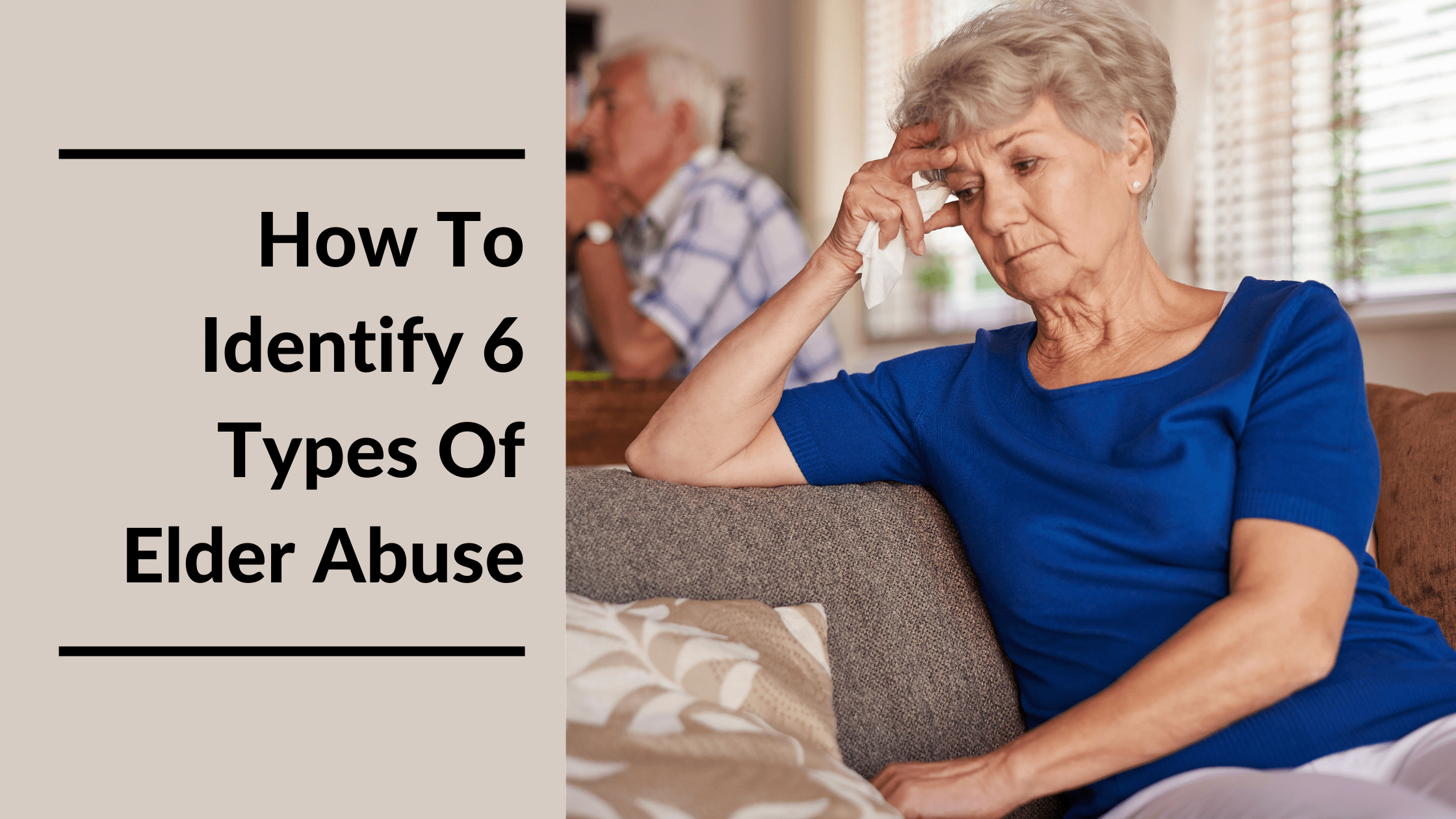
Elder abuse is a silent problem that deprives seniors of their dignity, safety, and — in some extreme (though unfortunate) cases —their lives. This article explains six types of abuse, warning signs, and what to do if you suspect abuse.
Updated August 9, 2022
What Is Elder Abuse?
Elder abuse is when someone responsible for the care of an older adult exploits them financially, inflicts physical, emotional, or sexual harm, or neglects their welfare.
Elder abuse occurs to as many as five million seniors every year. Yet, just over half a million cases go reported.
As frailty increases in elders, they are less able to care for themselves, resist bullying, or defend against attacks. Moreover, mental or physical conditions can lead some seniors to become difficult companions for people living with them. In addition, they may have worsening sight, hearing, and cognition, which raises their chances of someone taking advantage of them.
Elder abuse typically occurs in the home of the older adult and often are adult children, other relatives, spouses, or partners. Nevertheless, it also happens in institutional environments, particularly long-term care facilities.
All people deserve dignity, respect, and safety. Therefore, it is imperative that any suspicions of abuse or neglect by a caregiver, including financial manipulation, be reported immediately.
Jump To Your Section
Elder Abuse Facts
- Elder abuse is more likely to occur to elderly women than men.
- 1 out of 10 seniors experiences one or more types of abuse annually.
- In 2018, about 1 in 6 adults over 60 experienced a form of abuse in community environments.
- 2 in 3 nursing and long-term care facility staff members admitted abusing an elder in 2018.
- Elder abuse causes grave physical distress and long-term mental consequences.
- As elderly populations worldwide rise, so will cases of abuse.
- In 2015, there were an estimated 900 million seniors. By 2050, the number of adults 60 and older will rise to 2 billion.
Types Of Elder Abuse
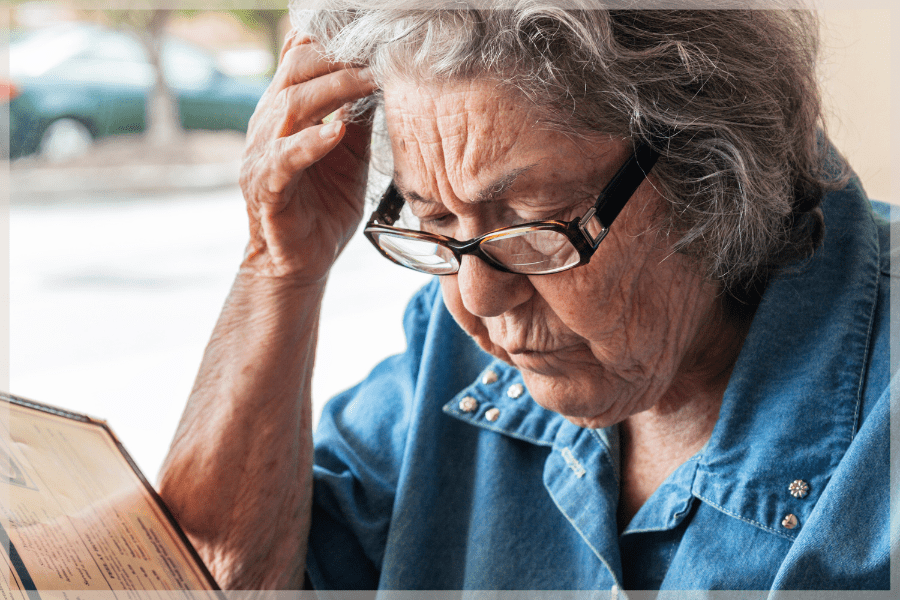
Physical mistreatment may be the first type of elder abuse that comes to mind because it can be one of the easiest to recognize. But unfortunately, other types of abuse, such as neglect or healthcare fraud, are less noticeable and therefore harder to identify. Also, recurring quarrels or tension between your loved one and caregiver could indicate an underlying problem.
Another issue that makes recognizing elder abuse challenging is that many warning signs may be mistaken for age-related frailty or symptoms of cognitive decline. Regardless, it’s crucial to seek professional help if new or unusual changes in your loved one’s appearance or behavior occur because they could stem from one (or more) forms of elder abuse outlined below.
1. Physical Abuse
Physical elder abuse is the intentional force against an elder that results in physical pain, injury, or damage. But physical abuse entails more than physical assault like hitting or pushing. For example, improper drug use, restraints, or confinement are all forms of physical abuse.
Signs of physical abuse in the elderly include:
- Broken eyeglasses
- Broken bones, sprains, or dislocations
- Signs of restraint like rope marks on wrists
- Caregiver resisting you seeing the older adult when they’re alone
- A report of drug overdose or failing to take routine medication, or a prescription having more left than it should
- Unexplained injuries like bruises, welts, or scars, particularly those that occur symmetrically on both sides of the body
2. Emotional Abuse
Emotional abuse is any treatment that creates emotional or mental pain or distress, such as:
- Shame and derision
- Causing fear or terror
- Intentional disregard
- Constant blaming or scapegoating
- Yelling or threatening to intimidate
- Isolating from loved ones, friends, or pursuits
Signs of emotional abuse in the elderly include:
- Aggressive, deriding, or dominating behavior from the caregiver
- Behavior that mimics dementia, like rocking, sucking, or murmuring to themselves
3. Sexual Abuse
Sexual abuse refers to any contact without consent. It can include physical sex acts, showing pornographic material, making somebody view sex acts, or forcible undressing.
Signs of sexual abuse in the elderly include:
- Bruising near breasts or genitals
- Unexplained vaginal or anal bleeding
- Ripped, stained, or bloody undergarments
4. Neglect
Elder neglect is the failure to meet a caretaking responsibility. Over half of all reports of elder abuse are cases of neglect. It can be deliberate, unintentional, or stem from ignorance or rejection that an older adult needs a certain level of care.
However, self-neglect is one of the most common types of elder abuse identified by geriatric care managers.
Self-neglect in the elderly can be purposeful or unintentional. Physical or cognitive deterioration or reduced abilities can leave some elders unable to perform essential self-care. For example, they may struggle to maintain personal hygiene or become dehydrated or malnourished. In addition, their home may become progressively unsanitary, or they may lose their ability to manage their finances.
Self-neglect can be a symptom of depression, grief, dementia, or other health concern. But, most of the time, the elder will refuse to get help because they are in denial, feel ashamed, or fear losing their independence.
Signs of neglect in the elderly include:
- Poor hygiene or grooming
- Abandonment in a public place
- Unsuitable clothing for the weather
- Disregarded physical issues like bedsores
- Unusual weight loss, malnutrition, or dehydration
- Hazardous living conditions, such as a lack of heat or running water
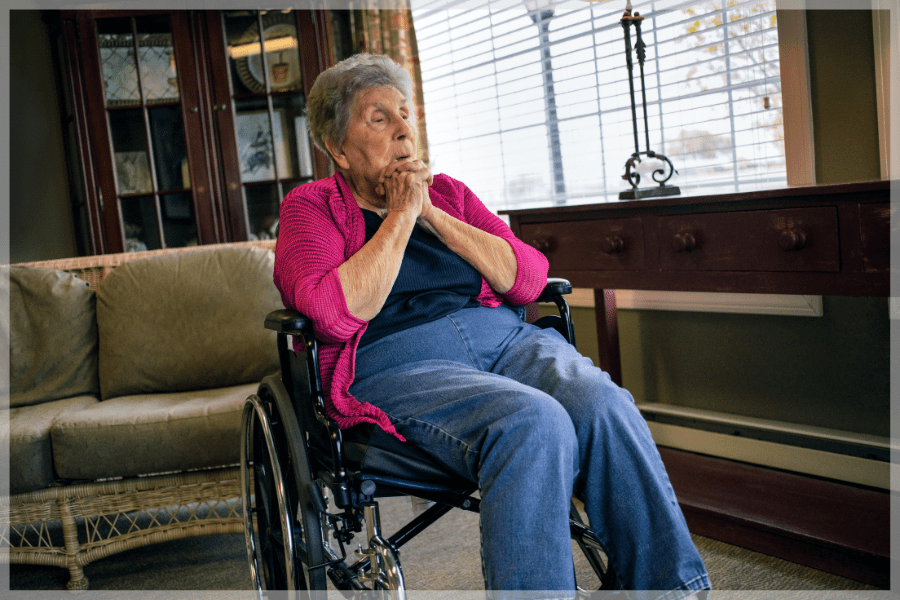
5. Financial Exploitation
Victims of financial abuse lose an estimated $36.5 billion each year. Caretakers or an outside party can financially exploit elders by using their funds or property for unsanctioned purposes, such as:
- Identity theft
- Forging signatures
- Misusing personal checks, credit cards, or accounts
- Stealing cash, income checks, or personal belongings
Honest caregivers, relatives, or friends must be aware of common scams that target seniors, such as:
- Fake charities
- Investment fraud
- Notification of a “prize” that requires payment to collect
Signs of financial abuse in the elderly include:
- Large amounts withdrawn from accounts
- Abrupt changes in the elder’s financial situation
- Missing belongings or cash
- Questionable changes in wills, power of attorney, titles, or policies
- Adding other names to the elder’s signature card
- Unusual financial activity that the older adult couldn’t perform
- Needless services, goods, or subscriptions
6. Healthcare Fraud
Unethical healthcare providers can also abuse older adults in their care, for example:
- Charging for healthcare services that they did not provide
- Overcharging or double-billing
- Receiving bribes for referrals to other providers or prescribing certain medications
- Over- or under-medicating
- Suggesting fraudulent treatments for illnesses or other conditions
- Medicaid fraud
Signs of healthcare fraud include:
- Duplicate statements for the same medical service or device
- Signs of over- or under-medication
- Indications of insufficient care even though bills are paid in full
- Issues within the care facility, such as poorly trained/paid staff, inadequate staff, overcrowding, incomplete answers to care questions
Risk Factors For Elder Abuse
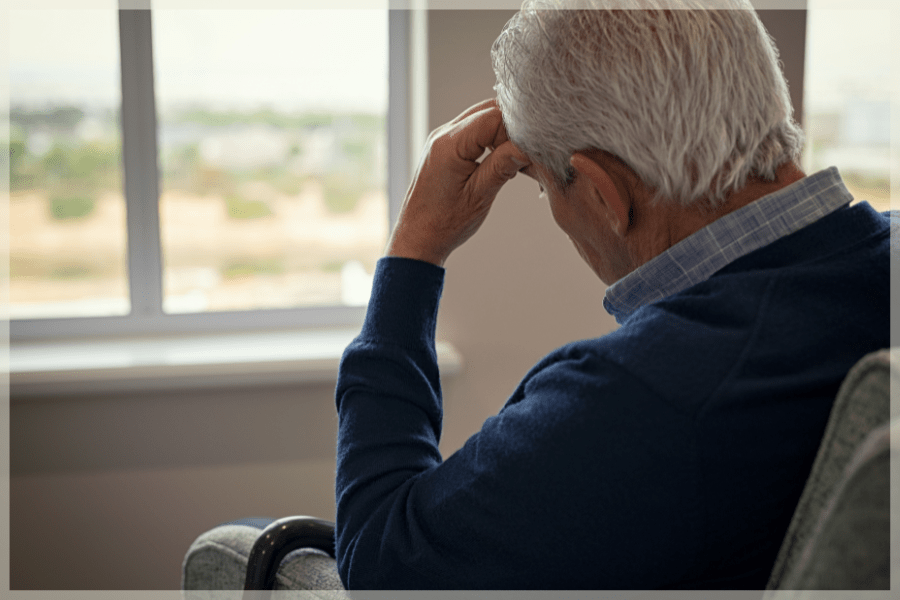
Of course, caregiving has many benefits, and many family caregivers find it fulfilling. However, the burden can increase as the aging adult’s health worsens, which can cause significant stress.
The demands of caregiving and the elder’s needs can cause situations where the chance of abuse is more likely. Additionally, caregiver burnout can lead to mental and physical health problems, decrease patience, and make them more susceptible to neglect or snapping at those in their care.
Other risk factors for elder abuse include:
- Depression in the caregiver
- Absence of support from other possible caregivers
- Substance abuse by the caregiver
- A high degree of the elder’s illness or dementia
- Social isolation
- The adult in care was previously an abuser
- A history of domestic violence at home
- The elder uses verbal or physical aggression
- The perception that caregiving is troublesome and has no emotional benefit
Caregivers in care facilities can also encounter a degree of stress that leads to abuse. For instance, inadequately trained nursing home staff who become overwhelmed with responsibilities, are unfit for the job, or work in poor conditions may be prone to elder abuse.
How Caregivers Can Avoid Elder Abuse
If you are responsible for the care of a senior and feel you are at risk of abusing or neglecting them, help and support are available.
Do you:
- Have trouble controlling your temper and find yourself screaming louder or lashing out more?
- Have other people who have communicated concern with your behavior or the hostility between you two?
- Feel emotionally detached or overcome by the day-to-day needs of the person in your care?
It’s important to realize that the first step to getting help and stopping abuse is admitting you have a problem.
1. Find ways to ease stress and burnout.
Stress is a huge factor leading to elder abuse and neglect. However, you can lower stress levels through routine stress-relieving methods like yoga, meditation, or deep breathing exercises.
2. Ask for help.
Whether from friends, other relatives, respite care agencies, or an adult daycare program. Find a way to take regular breaks from the job and focus on your self-care, even if it’s for a few hours.
3. Seek anger management.
Research techniques for controlling your temper and seek a professional about getting help.
4. Practice self-care.
If you aren’t getting enough sleep, you’re more likely to surrender to anger. So try also to eat healthily, follow an exercise routine, and stay on top of your own medical needs.
5. Get help for depression.
Family caregivers are particularly more at-risk for depression, and there are many things you can do to improve your mood and feel better.
6. Join a support group.
Share your anxieties and experiences with other caregivers dealing with the same challenges. It will help you feel less isolated and is an excellent way to learn tips and insight when caring for seniors.
7. Address substance abuse issues.
Getting help for substance abuse problems is not an easy task. However, there are many ways you can approach drug or alcohol abuse.
8. See a professional.
If you feel you’ve tried everything, but nothing works, it’s time to talk to a therapist.
How Family Members Can Prevent Elder Abuse
1. Make regular house or phone calls.
Frequently reaching out to the older adult will build trust and help them see you as someone they can come to for help.
2. Offer respite for the primary caregiver.
Volunteer to care for the elder so their caretaker can have time for themselves. If possible, extend this gesture regularly.
3. Track prescriptions and usage.
Make sure that the amount of medicine taken matches the prescription dates.
4. Be attentive to financial abuse.
Ask the senior for permission to check their bank accounts or credit card statements for unapproved purchases.
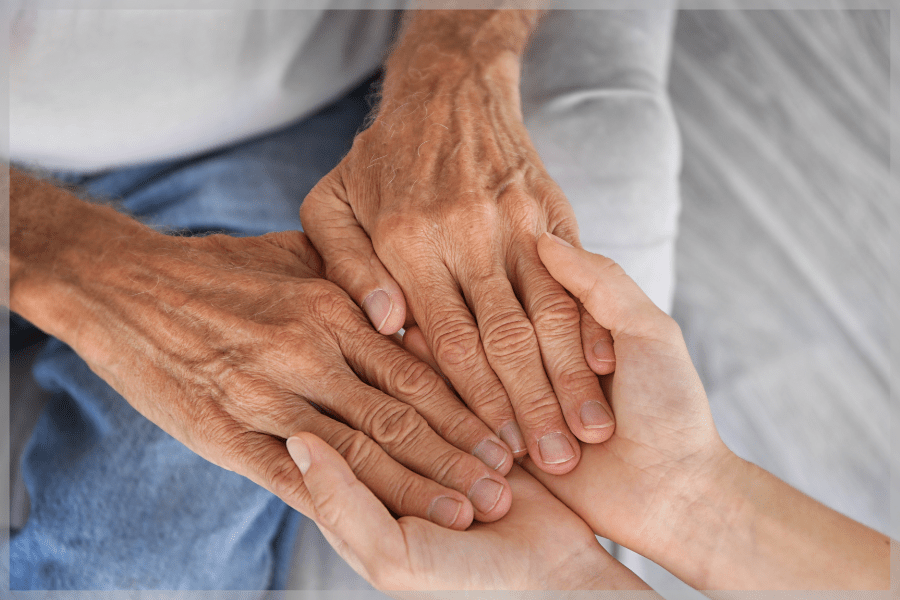
What To Do If You Suspect Elder Abuse Or Neglect
Tell someone if you are an older adult experiencing abuse, neglect, or exploitation. Alert your doctor, a friend, or a trusted relative, or call one of the numbers below.
Arrange your financial and legal affairs. Ask for professional help to get them in line if they aren’t. Reach out to loved ones and friends to prevent isolation. If you are unhappy with your care, tell someone or call an elder abuse hotline above all else.
If you witness elder abuse or neglect either presently or in the future, report the situation right away. Make continuous reports so authorities can form a complete picture. The more information, the more likely the elder will get the help they need.
Abuse can go unseen for a prolonged time because seniors can be more isolated from the rest of the world. At the same time, many older adults don’t report abuse, even if they’re capable. Some fear reprisal or see an abusive caretaker as better than none and having to move out of their home.
If the abusers are adult children, the aging parent might feel shame that their children are hurting them or blame themselves. Alternatively, they may feel they are protecting their children from the law. However, upholding the elder’s right to autonomy while ensuring they receive proper care can be challenging in any instance of abuse.
How To Address Elder Abuse From An Adult Child Or Family Member
Of course, it’s hard to accept that a family member has it in them to abuse someone you love. You might even feel apprehensive for fear that the elder becomes angry at you for saying anything. But early intervention is key to a better result for everyone.
First, do not face the abuser yourself. Unless you have permission and can promptly move them somewhere with safer care, confronting the abuser may put the elder in more danger.
Second, find support among other relatives. Other relatives might more successfully convince the elder to think about different care.
How To Address Self-Neglect
Suppose your loved one is unable to care for themselves safely. If so, research steps for legal guardianship or conservatorship. However, if no one in your family (including yourself) can take on this role, the court can designate a guardian.
Next, talk to your loved one’s doctor. Self-neglect can have detrimental medical consequences, so share your worries with their medical team.
You may also consider a trial period for home services. Prompting your loved one to hire a home service such as housekeeping or meal delivery for a few weeks may help them see positive differences and recognize the benefit of alternative care.
If your loved one’s health prevents them from remaining at home, gently introduce the idea of moving to assisted living. Set an appointment to visit an assisted living or care facility, but reassure your loved one that there’s no pressure to move. Touring a facility may disperse any myths or qualms about moving.
If your loved one declines help, continue reaching out to them. Ask others to express their concern. A peer or third party, like a geriatric care manager, may have more success getting through to your loved one.
Support And Resources For Elder Abuse
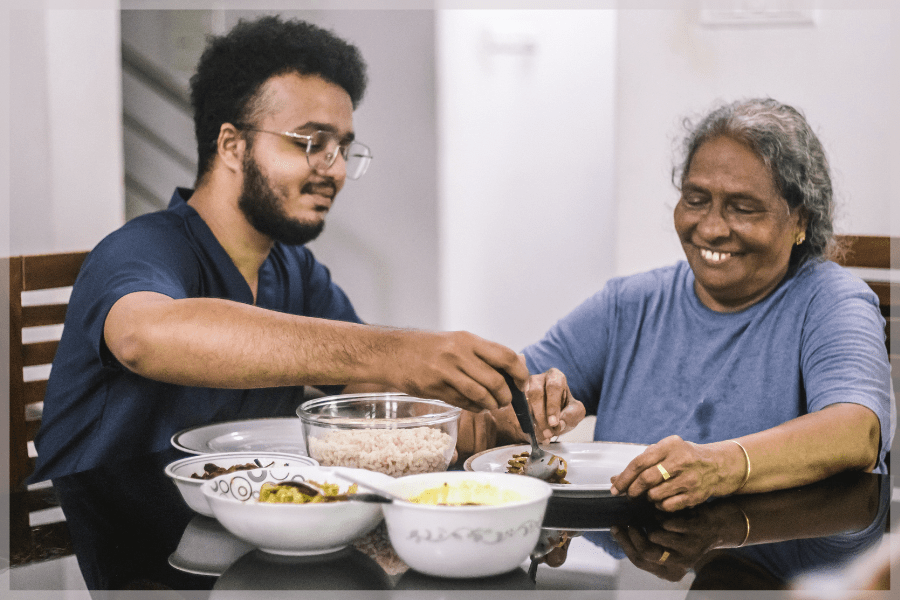
- VictimConnect: You can contact the VictimConnect Resource Center (VCRC) hotline via phone, text, or online live chat Monday through Friday from 9:00 AM to 5:00 PM ET. Call or text 1 (844) 443-5732 or click here to send a message on their website.
- National Domestic Violence Hotline: The NDVH is available around the clock. Call 1 (800) 799-7233 or text START to 88788. You can also talk to an advocate with the live chat tool.
- National Center on Elder Abuse (NCEA):
The NCEA offers resources for public and private agencies, professionals, service providers, and individuals seeking information about elder abuse prevention, technical assistance, and more. Call (855) 500-3537. - Adult Protective Services (APS): APS is responsible for receiving and investigating elder abuse complaints. APS is available in every state. It may be the Area Agency on Aging, the Division of Aging, the Department of Aging, or the Department of Social Services.
- Medicaid Fraud Control Units (MFCU): The federal government requires all state attorney general’s offices to maintain an MFCU that investigates and charges Medicaid provider fraud and patient abuse or neglect in Medicaid-approved health care programs and in-home services.
Sadly, elder abuse happens more than we think. Furthermore, it often goes unreported. This problem robs older adults of their security, dignity, and much more, so it’s crucial to know the signs and advocate for the vulnerable.
Caregiving can be frustrating for informal and professional caregivers. Still, there is never a reason that justifies elder abuse and neglect. So before things escalate, seek outside help.
We understand that elder abuse is often top-of-mind for families and seniors exploring options for in-home care. Unfortunately, articles like this may exasperate your concerns or discourage you from seeking outside help. However, becoming more informed can help you become a better advocate for yourself or a loved one.
If you want to Find A Caregiver for yourself or a loved one but have some concerns you’d like to put to rest first, we can help. Feel free to call 1 (888) 541-1136 to chat with one of our care coordinators one-on-one and learn how we take steps to prevent this problem.
For more resources, visit our Blog.
- Centers for Disease Control and Prevention. (2020, May 13). Fast Facts. CDC.gov. Retrieved August 9, 2022, from http://www.cdc.gov/violenceprevention/elderabuse/definitions.html. Updated June 2, 2021.
- Kaplan, D. B., & Berkman, B. J. (2021, February 4). Overview of Elder Abuse (Abuse of Older Adults). MSD Manual Consumer Version. Retrieved February 24, 2020, from http://www.msdmanuals.com/home/older-people%E2%80%99s-health-issues/elder-abuse/overview-of-elder-abuse. Modified February 2021.
- The Nursing Home Abuse Center Team. (2016, March 30). Elder Abuse Statistics – Statistics on Elderly Abuse Over Time. NursingHomeAbuseCenter.com. Retrieved August 9, 2022, from https://www.nursinghomeabusecenter.com/elder-abuse/statistics/. Modified January 16, 2020.
Robinson, L., Saisan, J., &; Segal, J. (2022, November 2). Elder Abuse and Neglect – HelpGuide.org. HelpGuide.org. Retrieved February 24, 2020, from http://www.helpguide.org/articles/abuse/elder-abuse-and-neglect.htm. Updated January 2021. - World Health Organization. (2020, February 24). Abuse of older people. World Health Organization. Retrieved August 9, 2022, from http://www.who.int/news-room/fact-sheets/detail/elder-abuse.
